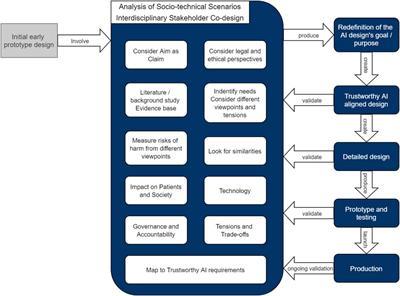Artificial intelligence (AI) has the potential to turn healthcare data into meaningful insights. The technology can help reduce the cognitive load for clinicians, giving them more time and energy to focus on patient care. Amid these significant benefits is an important question: Is AI designed to improve upon existing methods in terms of efficiency and ethics?
During a session at the Becker's Hospital Review 9th Annual CEO & CFO Roundtable, Cerner associates Dick Flanigan, senior vice president, and Rebecca Winokur, MD, senior physician executive, discussed the ethical use of data and AI in healthcare. Here are three key takeaways from their session.
Use of AI has grown in healthcare, but not all uses address problems holistically

Simple AI systems that run on rules-based algorithms ("if this, then this") consider only clinical variables before making treatment recommendations. This may be inadequate when attending to patients for whom a treatment plan would be impractical if they have difficulty affording a medicine, for example. By contrast, a more sophisticated AI learning system would consider a wider array of inputs, such as socioeconomic factors in addition to clinical data.
For optimal outcomes, data must be complemented with ethical considerations
Clinical indicators are not enough to drive healthcare decisions, not only because they exclude important nonclinical factors but also because prescriptive care based solely on data could embed unconscious bias. This may stem from incomplete data sets on which algorithms were trained or biased assumptions about patients.
AI technologies are also used in workforce-related contexts, such as to determine who gets to choose a shift, and in collections. But these uses can lead to biased treatment in favor of tenured staff and against the most vulnerable people with the least ability to pay, respectively.
Healthcare organizations can respond to these challenges by taking a systemic approach
Specific recommendations are to:
As the industry continues to explore how to integrate AI into healthcare delivery and operations, we must ensure that the technology is screened through an ethics lens. With a holistic approach that considers clinical and nonclinical data, AI can help produce better outcomes, improve clinician satisfaction and advance the overall healthcare experience.
Using data and intelligent technologies, Cerner is developing new solutions to help ease the clinician burden and transform healthcare outcomes. Learn more here.









